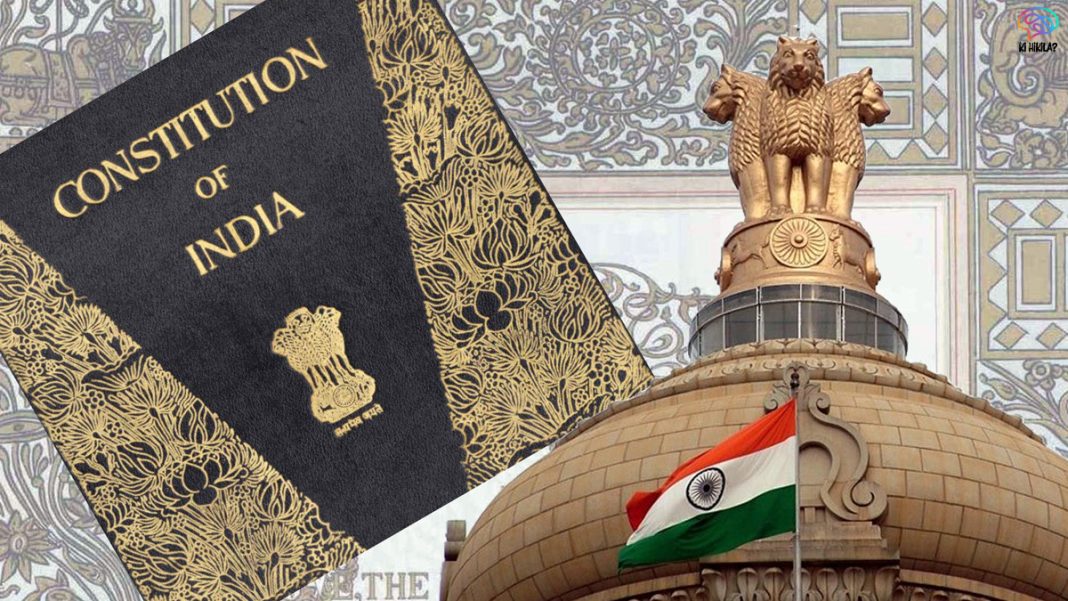Constitution 130th Amendment Bill has become one of the most discussed topics in Indian politics in 2025. Recently introduced in the Lok Sabha, the Bill has already sparked heated debates across party lines. Amid loud protests and disruptions, the Bill was referred to a Joint Parliamentary Committee (JPC) for further examination. It proposes critical changes to Article 75 of the Indian Constitution, specifically targeting ministers detained on serious criminal charges. While supporters hail it as a step towards accountability and good governance, critics argue it could erode democratic safeguards and weaken the principle of presumption of innocence.
Provisions of the Constitution 130th Amendment Bill
At the heart of the Bill is a provision that seeks to disqualify ministers who are detained for thirty consecutive days on charges punishable with five years or more of imprisonment. The key provisions include:
- Any minister who is arrested and remains in detention for thirty consecutive days will automatically lose their ministerial position.
- The President will formally remove such a minister on the advice of the Chief Minister by the thirty-first day of detention.
- If the Chief Minister does not act, the minister will cease to hold office automatically.
- Once released, the minister may be reappointed to the Council of Ministers.

This framework introduces a clear accountability mechanism designed to prevent ministers facing serious charges from continuing to exercise executive powers.
Amendment to Article 75
Currently, Article 75 of the Constitution provides the framework for the appointment, tenure, and responsibilities of the Council of Ministers. The Constitution 130th Amendment Bill proposes an additional clause to ensure ministers facing serious criminal allegations cannot hold office during prolonged detention.
The government has argued that this amendment strengthens constitutional morality, protects governance from criminal influence, and upholds the dignity of public office. Proponents believe it addresses long-standing concerns about leaders accused of corruption, money laundering, and other serious crimes misusing ministerial authority.
Opposition Concerns and Criticism
The Bill has faced stiff resistance from opposition parties. Their concerns include:
- Presumption of Innocence: Critics argue that disqualifying ministers based on detention, rather than conviction, undermines a fundamental legal principle.
- Potential Misuse: Many fear the provision could be weaponised by ruling parties using investigative agencies to target rivals, leading to politically motivated arrests.
- Democratic Risks: Leaders such as Mamata Banerjee have claimed the Bill is a “threat to democracy and federalism,” warning that it may allow authoritarian misuse.
- Separation of Powers: AIMIM’s Asaduddin Owaisi has criticised the move, stating it effectively makes the executive act as judge and jury by punishing ministers without judicial process.
This criticism highlights the delicate balance between ensuring accountability and protecting democratic freedoms.
Joint Parliamentary Committee (JPC) Review
The referral of the Constitution 130th Amendment Bill to a Joint Parliamentary Committee is a significant development. A JPC includes members from both the Lok Sabha and Rajya Sabha and is tasked with conducting a thorough review. The committee will:
- Examine the Bill’s language and implications.
- Consider expert testimonies, legal opinions, and public inputs.
- Submit a detailed report in the next parliamentary session.
Although the recommendations of a JPC are not binding, they carry substantial persuasive value and often influence final legislative decisions.
Implications of the Bill
The Constitution 130th Amendment Bill, if passed, will have far-reaching consequences:
- Ministerial Accountability: It will establish a stricter threshold for holding public office, particularly for those facing serious criminal allegations.
- Governance vs Democracy: While promoting cleaner governance, the risk of political misuse may undermine democratic stability.
- Legal Dilemmas: By disqualifying ministers based on arrest, it challenges established legal protections and creates new grey areas in constitutional law.
- Political Dynamics: The provision allowing reappointment after release offers some flexibility but may not fully address fears of misuse.

The debate reflects the ongoing struggle in Indian democracy to balance good governance reforms with the protection of rights and freedoms.
Conclusion
The Constitution 130th Amendment Bill represents a landmark attempt to reshape the standards of political accountability in India. It underscores the government’s determination to curb the influence of criminality in politics. However, the opposition’s apprehensions about misuse, federal imbalance, and democratic risks cannot be ignored.
As the Joint Parliamentary Committee deliberates on the Bill, the outcome will determine whether it becomes a robust safeguard for governance or a potential tool of political coercion. Either way, the 130th Amendment debate is set to shape India’s constitutional and political future in the years ahead.




